When my wife and I told our friends we were moving to Southern California, the list of things I should be concerned about was long. I should worry about wildfires, earthquakes, the homeless crisis, the liberal direction of government, and the immigration crisis. We just passed the one-year mark here, and I realized I wasn’t warned about what’s been the most persistent concern.
It’s been said that we humans have a negativity bias. Maybe you know this phrase.
Negativity bias is “the human tendency to pay more attention to and give greater weight to negative information and experiences than positive or neutral ones.”
Whether you know this term or not, it can explain the lion's share of our conversation topics.
I’ve noticed that a lull in conversation will often instinctively produce a story about some awful situation or garden-variety annoyance. Ears perk up, and the spotlight shines bright on the annoyed person talking. The aggravating topic being shared can garner immediate attention. (Psst, the news figured this out a while ago.)
There are at least a couple of reasons for a negativity bias:
Stronger Emotional Response: Negative experiences elicit a stronger emotional response and can be stored more vividly in memory. In our distracted culture, negativity can be a shortcut to the front of the line for attention.
Evolutionary Roots: This bias likely developed as a survival mechanism. Quickly recognizing and responding to threats was crucial for survival, so the brain prioritized processing negative information.
However, I’m afraid our bent towards negativity is more ingrained than the phrase negativety-bias can even communicate. We have a negativity obsession.
I’ll leave the reasons to others to decide, but having dedicated the early part of my career to news broadcasting, I know that “if it bleeds, it leads.” Media companies fighting for clicks and eyeballs have become dumpster fire specialists, ensuring the all-mighty click-throughs to earn ad revenue.
Even if you don’t watch the news, the trauma-bonded public of which we are a part can dictate the conversations we all have. It’s like trying to swim in toxic waters; it gets messy even if you’re not drinking the toxicity before you swim.
Why didn’t someone warn me?
So, the real thing I never was warned of or could have anticipated was becoming interested in flowers. These massive blooms with arrestingly beautiful, vivid colors will force me to stop what I’m doing, or where I will take a picture. Why didn’t anyone warn me I’d be gobsmacked by such color and beauty? That I’d become a victim of their displays. Don’t they care about my well-being? My lost work time and slower commute are among the concerns they didn’t alert me to. Please think of the literal minutes I’ve lost to looking at a screen.
What you look for shows up, or often doesn’t
I’m having a little fun here, but the phrase “where focus goes, energy flows.”
The phrase means: “the direction of your attention dictates how your energy is channeled and utilized. Concentrating on something specific will direct your mental and physical energy towards that focus.”
But Rob, you should probably be concerned about those things. You mean the things that might happen? But the concerns aren’t actual flowers. Flowers are happening.
Not another “be present” piece
The number of messages today that tell us to be present is staggering, but the idea isn’t to be ignored. Are we looking for the beauty? If we’re not, we may not even see it when it shows up. Below are a few of my favorite explosions of reckless blooms. There’s beauty where you are, I hope you look for it as much as what there is to fear.
Be well, friends.

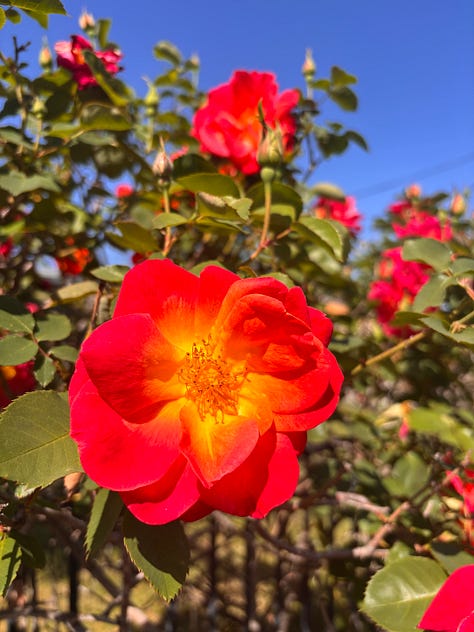
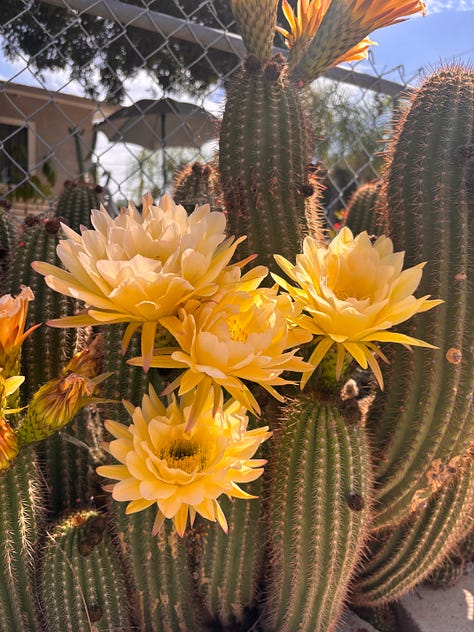

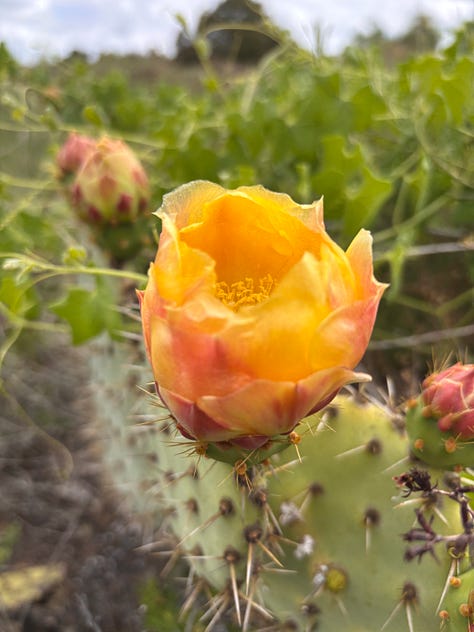


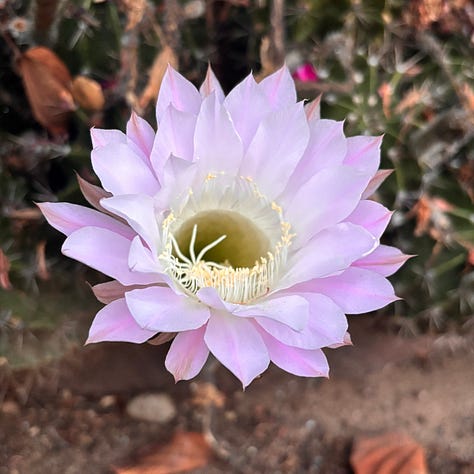
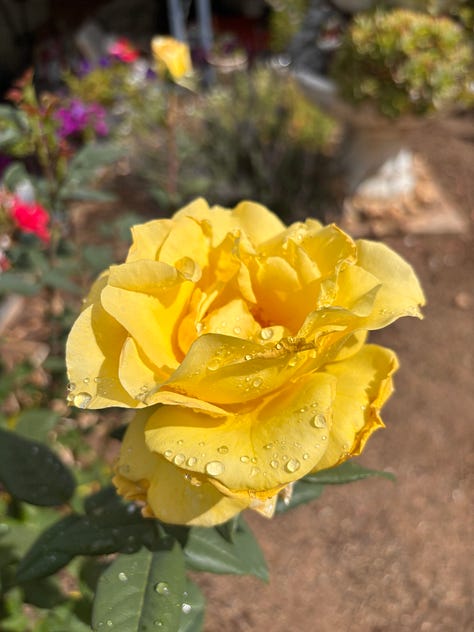












Share this post